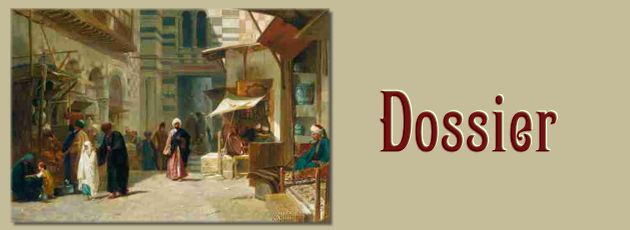
Posesión y desposesión: perspectivas sobre el coleccionismo
María Mercedes Andrade, Profesora Asociada, Universidad de los Andes (editora invitada)
El coleccionismo y las colecciones ocupan un lugar importante en el desarrollo de la cultura moderna, tanto a nivel personal como colectivo. Quién colecciona, qué colecciona, por qué lo hace y qué significados se le asignan al acto de coleccionar, son preguntas cuyas respuestas tienen implicaciones significativas para la construcción de identidades personales o comunales, y en las cuales se entrecruzan lo estético, lo ético, lo político y lo erótico. El siguiente dossier reúne una serie de textos que exploran el coleccionismo desde diversos ángulos y tradiciones culturales. Celeste Olalquiaga, nuestra invitada especial, reflexiona sobre la relación entre la reliquia y el rol de lo táctil. Tanto Shelley Garrigan como María Mercedes Andrade y Francisco Morán leen el coleccionismo en el contexto de la constitución de identidades en la Hispanoamérica de fines del siglo XIX. El dossier concluye con dos textos breves. Alan Ashton-Smith, explora las implicaciones políticas y personales del coleccionismo en la Checoslovaquia comunista a partir de la novela Una soledad muy ruidosa, de Bohumil Hrabal. A este sigue “Bazares,” del libro de viajes Constantinopla, de Théophile Gautier. Aquí, la construcción del Oriente tiene lugar a través de un vertiginoso coleccionismo más apropiado para el extravío del viajero occidental que para afirmar su diferencia.
Possession and Dispossession: Perspectives on Collecting
María Mercedes Andrade, Universidad de los Andes (guest editor)
Collections and collecting occupy an important place in the development of modern culture, both at the personal and communal levels. “Who collects?,” “what does s/he collect?,” “why?,” and “what meanings are assigned to the act of collecting?” are questions which have significant implications for the construction of individual and communal identities, and in which the fields of aesthetics, ethics, politics, and erotics intersect. This dossier includes a series of texts that explore different aspects of the collector’s activity, in various cultural traditions. Celeste Olalquiaga, our special guest, reflects on the relationship between relics and the role of tactility. Shelley Garrigan, María Mercedes Andrade as well as Francisco Morán link collecting to politics of identities in fin-de-siècle Hispanic America. The dossier ends with two brief texts. First, Alan Ashton-Smith discusses the political and personal implications of collecting in communist Czechoslovakia, as they are depicted in Bohumil Hraval’s novel Too Loud a Solitude. Next, we offer “Bazaars” from Théophile Gautier‘s travel account Constantinople. Here, the Orient is constructed through a vertiginous collecting more apt to stray the European traveler from his purported Western difference which he seeks to assert.
About the authors:
Celeste Olalquiaga is a cultural historian interested in the contradictions of modernity and the residual aspects of modern culture. She has proposed kitsch as the crystallization of an imaginary experience. Currently at work on a re-examination of the myth of Medusa, she is also studying the evolving boundaries between nature and technology. An independent scholar, Celeste publishes, lectures and does artistic collaborations worldwide. Her books include Megalopolis: Contemporary Cultural Sensibilities (1992) and The Artificial Kingdom: A Treasury of the Kitsch Sensibility (1998). Visit her website Celeste’s World at: http://www.celesteolalquiaga.com/
Shelley Garrigan is currently an Assistant Professor at North Carolina State University. Her areas of concentration include nineteenth century Latin American visual and material culture, collecting, modernismo, and current intersections between technology and national patrimony. In her forthcoming book, Collecting Mexico: Museums, Monuments, Statistics, and the Creation of Mexican Identity (University of Minnesota Press), she addresses the intersections of patrimony and commerce that occur in a select group of institutionalized public collections in Porfirian Mexico.
María Mercedes Andrade is currently Associate Professor of Literature at the Universidad de los Andes (Bogotá, Colombia). She received a Ph.D. in English and Comparative Literature and a M.A. in Hispanic Literature at SUNY, Stony Brook. Andrade also received a M.A. in Philosophy at the New School for Social Research. She has published numerous articles on Latin American literature from the nineteenth and twentieth centuries. Prof. Andrade is the author of La ciudad fragmentada: una lectura de las novelas del Bogotazo (Ediciones Inti, 2002) and the novel Elegía para una insomne (Cuarto Propio, 2007). She is working on an anthology of essays on collecting in Latin America.
Francisco Morán (La Habana, 1952) is a poet, essayist and professor of Hispanic American literature at Southern Methodist University (Dallas, TX). He received his Ph.D. at Georgetown University. Morán has published articles on Hispanic American romanticism and modernismo. He is the author of El cuerpo del delito, poesía (Sevilla, 1999), Casal à rebours (Habana, 1996) and Julián del Casal o los pliegues del deseo (Madrid, 2008). Desde 1998 edita la revista electrónica La Habana Elegante (www.habanaelegante.com).
Alan Ashton-Smith is a PhD candidate at the London Consortium, and his thesis topic is the nascent musical genre and cultural movement, Gypsy Punk. His other research interests include the limits of postmodernity, immigration and the possibilities of multiculturalism, and Eastern European art and cultures.

